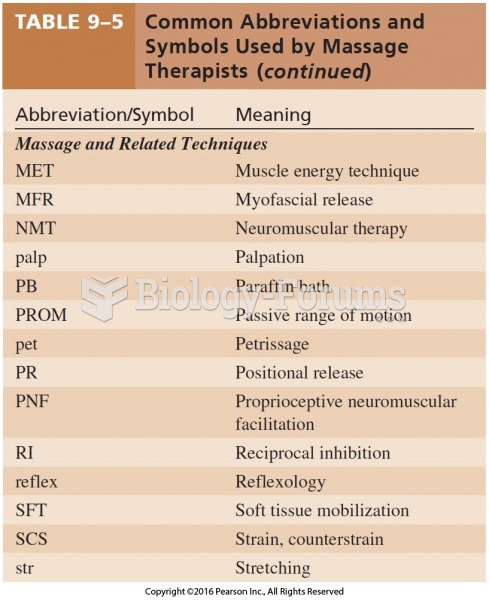|
|
|
Atropine was named after the Greek goddess Atropos, the oldest and ugliest of the three sisters known as the Fates, who controlled the destiny of men.
The human body produces and destroys 15 million blood cells every second.
Astigmatism is the most common vision problem. It may accompany nearsightedness or farsightedness. It is usually caused by an irregularly shaped cornea, but sometimes it is the result of an irregularly shaped lens. Either type can be corrected by eyeglasses, contact lenses, or refractive surgery.
The heart is located in the center of the chest, with part of it tipped slightly so that it taps against the left side of the chest.
More than 34,000 trademarked medication names and more than 10,000 generic medication names are in use in the United States.







